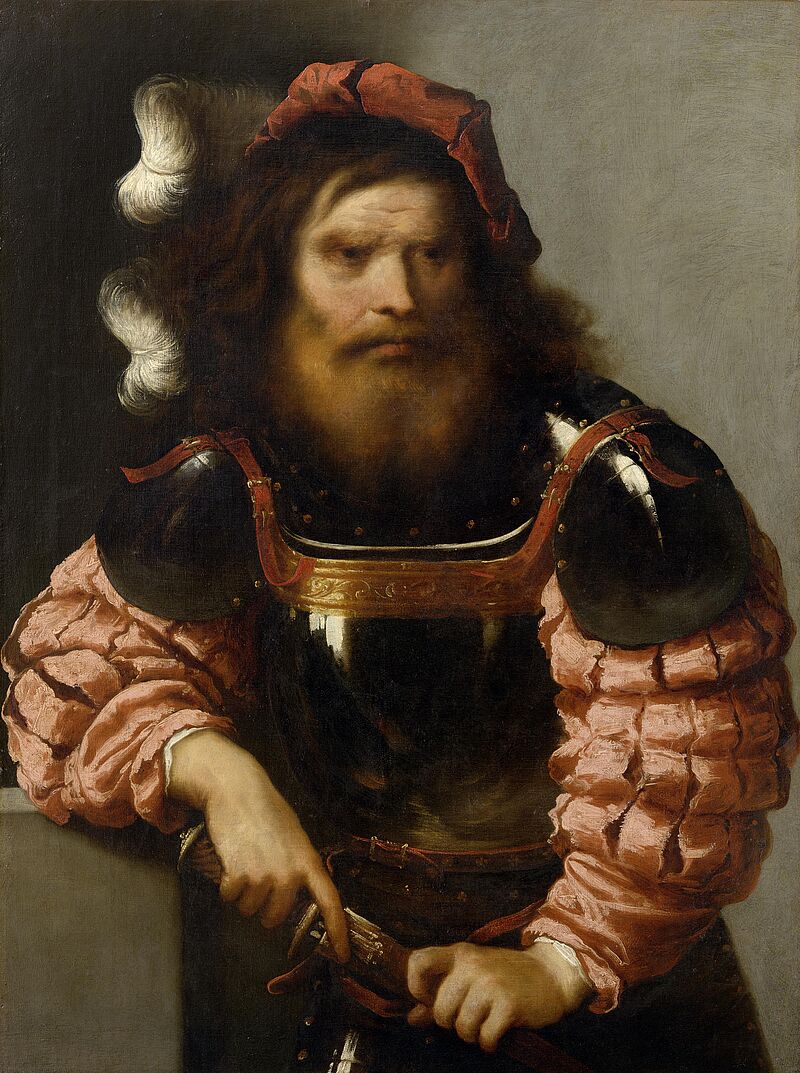Warrior in Armour, drawing his Sword
Pietro della Vecchia (1602/03 - 1678)
Framesize 124.60 x 98.20 x 12.50 cm
Only from 1633, with a major commission for the San Lio Church in Venice, is della Vecchia’s work clearly substantiated. He painted a Crucifixion scene, still very much under the influence of Caravaggio’s (1571–1610) chiaroscuro and his Venetian successor Saraceni (between 1580 and 1585–1620). The "Warrior in Armour, Drawing his Sword" shows a later work period. The warm earthy colours, the soft light and supple modelling of the body contours bring to mind the Venetian masters of the Cinquecento, creating a poetic atmosphere. The soldier leans casually on a grey ledge, yet his grim expression and the hand on his sword show determination. Accents of colour underline this tensionladen moment – the pale pink slit sleeves, the dark red leather bands on the breast-plate and the red beret adorned with white feathers.
Della Vecchia painted numerous versions of the half-figure soldier including those in the Kunsthistorisches Museum/Vienna, inv. no. 70, Národni Galerie/Prague, inv. no. DO 4306, Gemäldegalerie Alte Meister/ Dresden, inv. no. 531, private collection/Turin, Coll. Tibertelli de Pisis/ Milan. The last two are formally very similar to the Salzburg painting.
Due to a transcription error by art historian Luigi Lanzi (1732–1810), della Vecchia has also gone by the name of Pietro Muttoni since the turn of the 19th century. Lanzi’s article "Storia pittorica dell’Italia" is based on a work by Francesco Bartoli – "Le pitture, sculture ed architetture della città di Rovigo" (1793); it mentions a work by the artist in the Muttoni Collection in Rovigo.
HABERSATTER Thomas: Vecchia Pietro della, Warrior in armour, drawing his sword, in: DUCKE Astrid, HABERSATTER Thomas, OEHRING Erika: Masterworks. Residenzgalerie Salzburg. Salzburg 2015, p. 30
Download of this artwork is permitted for private use only.
Here you will find our license for non-commercial use.


